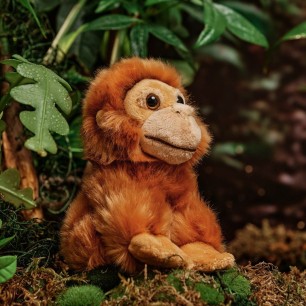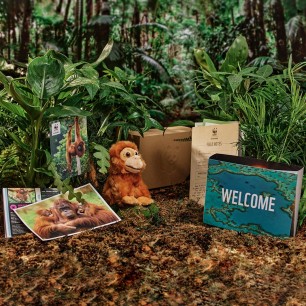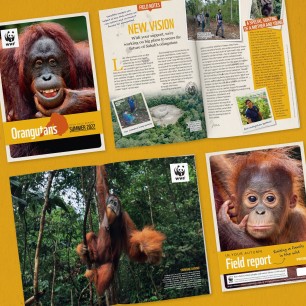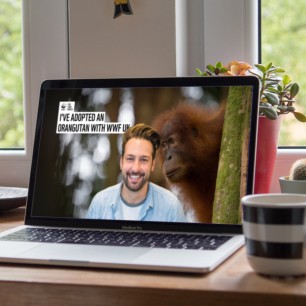Orangutans are critically endangered. Their numbers have declined by 50% in the last 60 years.
There are three species of orangutan – the Sumatran, Tapanuli and Bornean. Orangutans used to roam as far north as southern China, and as far south as the Indonesian island of Java. Today they’re only found on two islands – Sumatra and Borneo.
Your adoptions will help protect orangutan habitats and help fund our other vital work around the world. When you choose an animal adoption, you are supporting both your chosen animals as well as wider work to help bring our world back to life.
Adopt an orangutan and receive
Orangutans spend a lot of time alone but have loose relationships with other orangutans in their community. They spend most of their lives in trees, where their long, strong arms help them swing through the forest canopy and hang from branches as they eat their favourite food – fruit.
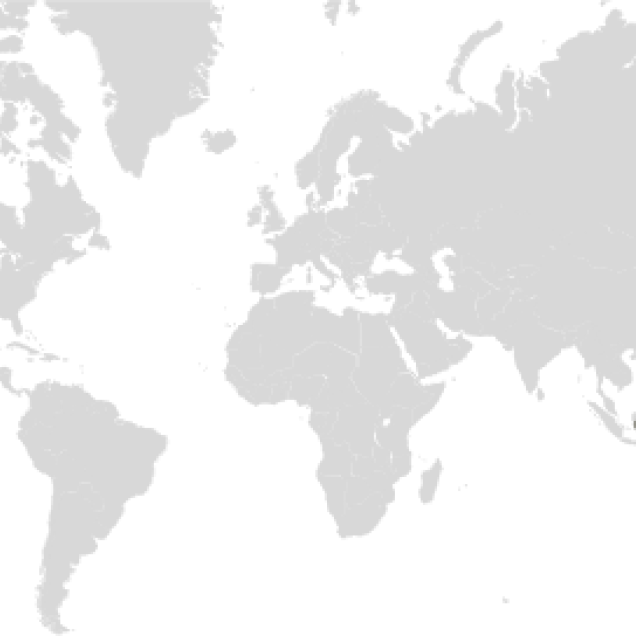
Threats that orangutans face
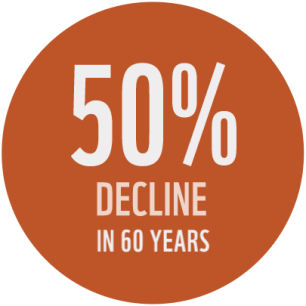
Habitat loss
Conversion of forests to palm oil plantations is the biggest cause of habitat loss for orangutans. Road development, illegal logging and mining also impact it.

Palm oil
Peat swamp forests that are home to high densities of orangutans are often targeted for oil palm plantations. Palm oil is found in around 50% of products in your supermarket.
Human orangutan conflict
On average 2,200 Bornean orangutans are thought to be killed each year due to hunting, conflict in agricultural areas and the illegal pet trade.
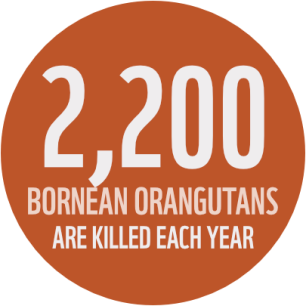
Illegal pet trade
Young orangutans up to the age of seven are sought after for the illegal pet trade.
How we can help
We’re working to identify and restore wildlife corridors between protected areas. This will reconnect previously fragmented orangutan habitat so there will be large blocks of interconnected forests.
We're also promoting the production and use of sustainable palm oil. We helped set up the Roundtable on Sustainable Palm Oil (RSPO) which is working to transform markets and make sustainable palm oil the norm.
Your adoption and support will help us:
- create and extend protected areas of rainforest
- promote the buying and use of sustainable palm oil to manufacturers and consumers
- promote sustainable use of natural resources
- support local communities in managing protected areas
- fund our other essential work around the world
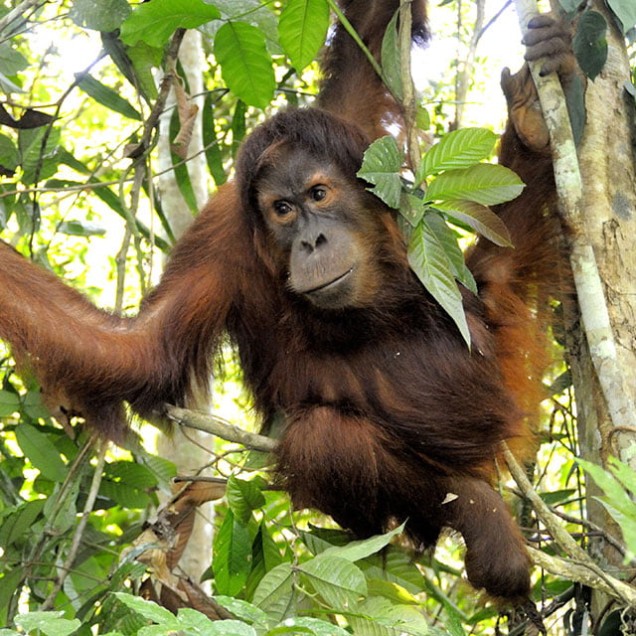
Last minute gift?

Free delivery
We offer free delivery but ask you to consider helping to cover postage with an optional £3 donation taken at checkout. This means more of your gift can go towards supporting your adoption animal and our wider work.
Your pack will be sent within 2-3 working days - but allow up to 5 working days for it to arrive.
Want to protect other apes too? Check out our adopt an ape page to find out more.

